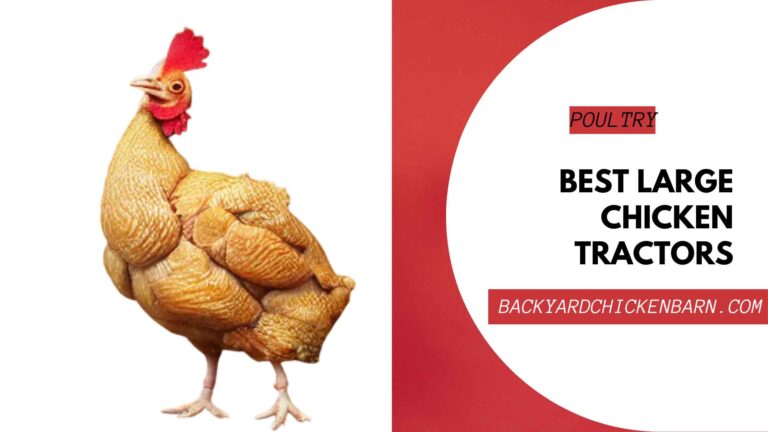Can Chickens Eat Banana Peelings?
Chickens can eat banana peelings, but there are some important considerations to ensure they are consumed safely and beneficially. Banana peels are not toxic to chickens, but they can be tough and difficult to digest. Here’s what you need to know.
Nutritional Benefits of Banana Peelings for Chickens
Banana peelings are rich in nutrients, including:
- Fiber: Promotes healthy digestion.
- Vitamins: Contains vitamins B6, B12, and C, which support immune function and energy metabolism.
- Minerals: Provides potassium and magnesium, essential for muscle function and overall health.
- Antioxidants: Helps combat oxidative stress and support overall health.
Key Nutrients in Banana Peelings
- Fiber: Enhances digestive health.
- Vitamin B6 and B12: Support energy metabolism and red blood cell formation.
- Vitamin C: Boosts the immune system.
- Potassium: Vital for muscle function and fluid balance.
- Magnesium: Important for bone health and metabolic processes.
How to Serve Banana Peelings to Chickens
To safely feed banana peelings to your chickens, follow these guidelines:
- Wash Thoroughly: Rinse the banana peels to remove any pesticides or dirt.
- Cook or Blend: Cooking or blending the peels can make them softer and easier for chickens to digest.
- Cut into Small Pieces: Chop the peels into small, manageable pieces to make it easier for chickens to eat.
- Moderation is Key: Feed banana peels as part of a balanced diet, not as the primary food source.
Step-by-Step Guide to Preparing Banana Peelings
- Choose Ripe Bananas: Ensure the bananas are ripe and the peels are fresh.
- Clean the Peels: Wash thoroughly to remove any contaminants.
- Cook or Blend: Boil, steam, or blend the peels to soften them.
- Chop into Pieces: Cut the peels into small pieces.
- Serve: Place the prepared peels in the feeding area.
Potential Concerns and Precautions
While banana peels are generally safe for chickens, there are a few things to keep in mind:
- Tough Texture: Raw banana peels can be tough and difficult to digest, so cooking or blending is recommended.
- Pesticide Residue: Banana peels can contain pesticide residues, so washing thoroughly is essential.
- Balance in Diet: Ensure banana peels are part of a varied diet that includes other vegetables, fruits, grains, and protein sources.
Quick Tips for Feeding Banana Peelings
- Clean Thoroughly: Remove any pesticides and dirt.
- Cook or Blend: Make the peels easier to digest.
- Small Pieces: Ensure easy consumption.
- Moderation: Prevent digestive issues by feeding in moderation.
Alternative Fruit Scraps for Chickens
If your chickens enjoy banana peels, they might also benefit from these other fruit scraps:
- Apple Cores: Rich in fiber and vitamins, but remove seeds.
- Melon Rinds: Hydrating and nutritious.
- Cucumber Peels: Hydrating and low in calories.
- Carrot Peels: High in vitamins A and K, and good for vision and bone health.
Comparison of Fruit Scraps for Chickens
| Fruit Scrap | Nutritional Benefits | Notes |
|---|---|---|
| Banana Peels | Fiber, vitamins B6, B12, C, potassium | Cook or blend, serve in moderation |
| Apple Cores | Fiber, vitamins A, C | Remove seeds, serve in moderation |
| Melon Rinds | Hydration, vitamins A, C | Serve raw, easy to digest |
| Cucumber Peels | Hydration, low calorie | Serve raw, hydrating |
| Carrot Peels | Vitamins A, K, fiber | Serve raw or cooked |
FAQs
Q: Can chickens eat raw banana peels?
A: While chickens can eat raw banana peels, they are tough and difficult to digest. It’s better to cook or blend them to make them softer and easier to consume.
Q: How often can I feed banana peels to my chickens?
A: Banana peels can be given as an occasional treat, no more than once or twice a week, and in small amounts to avoid digestive issues.
Q: Are banana peels safe for chicks?
A: Yes, but they should be cooked or blended and cut into very small pieces to prevent choking and ensure easy digestion.
Conclusion
Banana peels can be a nutritious and enjoyable treat for chickens when prepared and fed correctly. Their rich fiber, vitamin, and mineral content can support your flock’s overall health. Incorporate banana peels into a varied diet that includes other fruit scraps, vegetables, grains, and protein sources to keep your chickens happy and healthy.
Quick Tips:
- Nutrient-rich: Fiber, vitamins B6, B12, C, potassium.
- Preparation: Wash, cook or blend, cut into small pieces.
- Frequency: Feed in moderation as part of a balanced diet.
Treat your chickens to some banana peels and watch them enjoy this nutritious fruit scrap!


